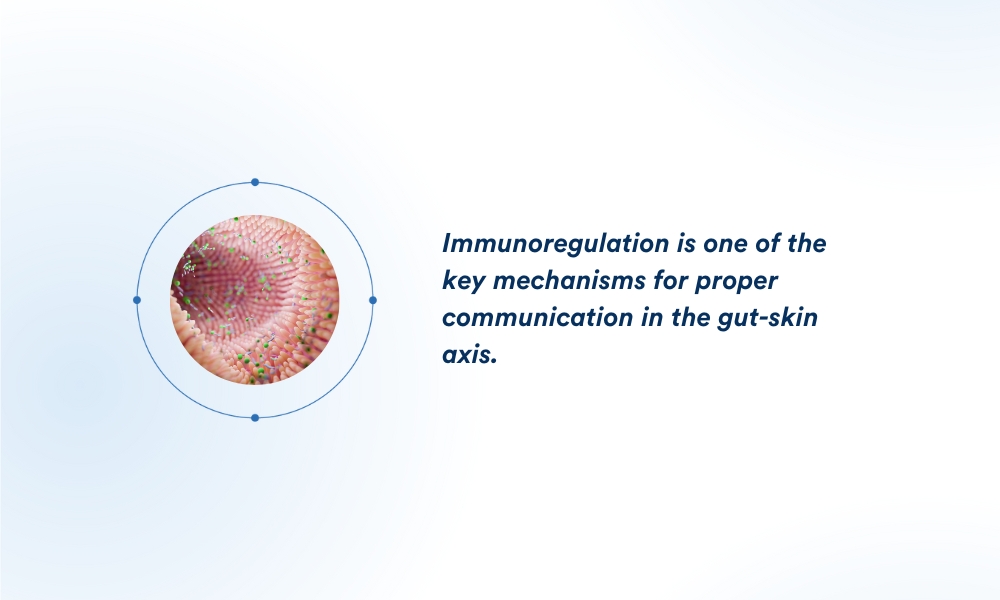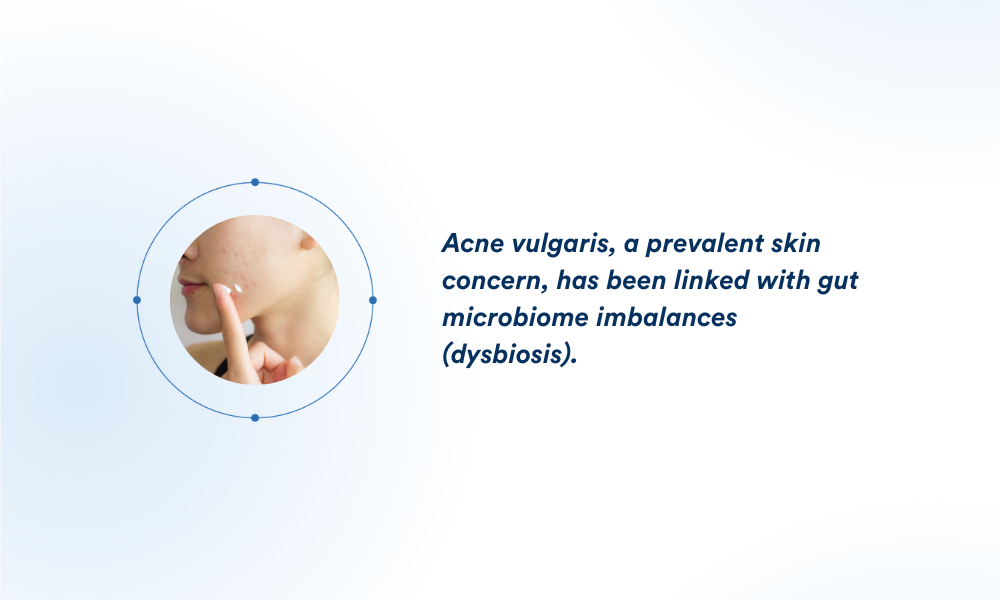Why Beauty Isn't Skin-Deep : Skin Secrets From The Microbiome!
Posted at : 02-22-2025 | 7 mins read

The Gut-Skin Axis explains how gut microbiota activity impact skin biology and vice versa, thus confirming a bi-directional relationship between the gut and the skin. Dynamic changes in the gut microbiome control inflammatory mechanisms involved in the development of rosacea, dermatitis and premature aging. This underscores the importance of maintaining a balanced gut for flaunting healthy, vibrant skin.

Gut bacteria influence the function of gut-associated lymphoid tissues (GALTs) which play a crucial role in preventing skin inflammation, by shielding the body from environmental invasions.
Addressing gut dysbiosis is crucial to optimize skin health because this helps regulate immune response, maintain gut barrier integrity, and prevent bacteria from entering the bloodstream and disrupting skin homeostasis.

A case-control study revealed interesting links between gut bacterial composition and acne severity. A key finding was the presence of increased Proteobacteria and reduced Bifidobacteria abundances in individuals with acne vulgaris. Another study highlighted a trend for altered F/B ratios (reduced Firmicutes and increased Bacteroidetes numbers) in acne cases when compared with controls. These findings suggest that dietary modifications which aim to rebalance these bacteria can reduce acne severity.
Many other skin-associated symptoms, such as the formation of wrinkles, loss of hydration, disruption of skin barrier and onset of autoimmune issues (e.g. psoriasis, eczema) have been traced back to a loss of beneficial gut bacteria and their metabolites.
Research on the gut-skin axis continues to highlight more microbial associations. This presents a promising future with the development of targeted skin solutions ranging from personalized diets, potent probiotics, topicals and advanced delivery systems for skin therapeutics.
References
Polkowska-Pruszyńska, B et al. “The gut microbiome alterations in allergic and inflammatory skin diseases - an update.” Journal of the European Academy of Dermatology and Venereology : JEADV vol. 34,3 (2020): 455-464. doi:10.1111/jdv.15951
Mahmud, Md Rayhan et al. “Impact of gut microbiome on skin health: gut-skin axis observed through the lenses of therapeutics and skin diseases.” Gut microbes vol. 14,1 (2022): 2096995. doi:10.1080/19490976.2022.2096995
Salem, Iman et al. “The Gut Microbiome as a Major Regulator of the Gut-Skin Axis.” Frontiers in microbiology vol. 9 1459. 10 Jul. 2018, doi:10.3389/fmicb.2018.01459
Yan, Hui-Min et al. “Gut microbiota alterations in moderate to severe acne vulgaris patients.” The Journal of dermatology vol. 45,10 (2018): 1166-1171. doi:10.1111/1346-8138.14586
Deng, Yongqiong et al. “Patients with Acne Vulgaris Have a Distinct Gut Microbiota in Comparison with Healthy Controls.” Acta dermato-venereologica vol. 98,8 (2018): 783-790. doi:10.2340/00015555-2968
Health KidsNavipoint
Health AdultsNavipoint
Health LongevityGut Balance Program

Chicago, USA and Hyderabad, India
Headquarters in Chicago, IL USA
© 2025-2026 All Rights Reserved.
Terms & ConditionsPrivacy Policy







